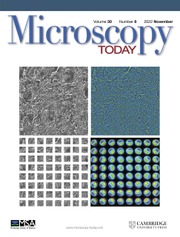No CrossRef data available.
Article contents
Liquid Nitrogen Safety
Published online by Cambridge University Press: 14 March 2018
Extract
Recent Internet postings on the Microscopy listserver indicate paradoxical views on the personal protective equipment (PPE) necessary to handle liquid nitrogen (LN2) safely. Those views range from full protective gear to, somewhat facetiously, complete nudity. The crux of the paradox is that both extremes have points of validity.
The gist of preventing frostbite or cold injury to the skin is to prevent continuous contact with LN2. The physics of the Leidenfrost effect (LE) protects the skin from momentary contact or splashes of LN2. A layer of gas between the LN2 and the skin prevents significant heat transfer from the skin, stopping damage. The LE does not apply to inadvertent splashes of LN2 to the cornea. Alternatively, using protective equipment insulates the skin and prevents trapping of the cryogen by allowing the LN2 to run off.
- Type
- Research Article
- Information
- Copyright
- Copyright © Microscopy Society of America 1996


